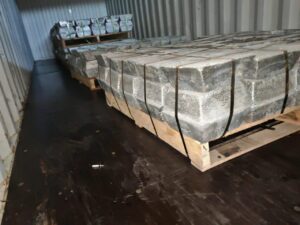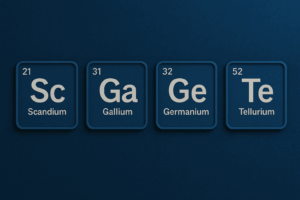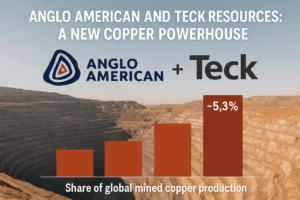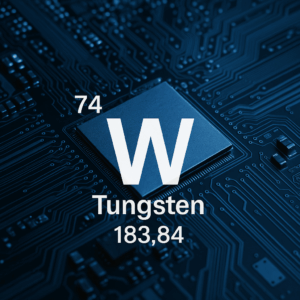Germany and Canada are forging a deeper alliance that brings together two pillars of modern geopolitics: critical minerals and defense cooperation. Their growing partnership represents not just bilateral diplomacy, but a broader move to reinforce supply chains, accelerate clean energy transitions, and ensure transatlantic security in a time of escalating global uncertainty. As both nations step into this strategic alignment, their shared initiatives carry implications for industries, investors, and policymakers worldwide.
The Rising Importance of Critical Minerals
Central to the partnership is the evolving demand for critical minerals—lithium, cobalt, nickel, and rare earth elements. These materials form the foundation for electric vehicles, renewable energy technologies, and defense systems. As countries worldwide expand clean energy and digital infrastructure, access to these resources has become a defining factor of future economic and technological competitiveness.
Canada, endowed with vast reserves of critical minerals, is positioning itself as a reliable supplier to friends and allies. These resources have long been underexploited, but Ottawa’s recent policy focus has shifted toward sustainable mining and responsible supply chains that align with climate commitments. Germany, which imports nearly all of its essential minerals, sees Canada as a strategic partner in its quest to reduce dependence on fragile or politically risky suppliers such as Russia and China.
For Germany, where industries like automotive manufacturing and battery production dominate economic output, securing reliable access to raw materials is more than a trade matter—it is a national interest. The competition is global: automakers, energy firms, and tech companies are racing to lock in supply contracts, making bilateral frameworks all the more valuable.
Building a Sustainable Minerals Alliance
As part of this bilateral strategy, Germany and Canada have committed to joint projects in exploration, processing, and research into environmentally responsible extraction. The two countries stress the importance of balancing industrial progress with climate responsibility, developing supply chains that minimize environmental harm while enhancing energy security. This collaboration is designed not just as a transactional exchange, but as a model of sustainable supply chain architecture.
- Canada offers a politically stable and resource-rich foundation for diversifying Europe’s mineral imports.
- Germany provides advanced industrial expertise and global market demand that can propel mining and refining projects forward.
- Both nations emphasize shared values in human rights, labor standards, and environmental protection, setting their strategy apart from resource arrangements in less transparent markets.
In practice, this alliance signals a realignment of supply chains at a moment when Europe reevaluates its vulnerabilities. For Canada, the economic uplift could be significant, while Germany secures a partner capable of delivering the resources needed to fuel its green transition and manufacturing might.
Enhancing Defense Cooperation
Equally important to the mineral aspect is the defense dimension of the relationship. As NATO partners confronting mounting pressures from Russia’s war in Ukraine and rising global militarization, Berlin and Ottawa have underscored the necessity of closer coordination. The two sides are exploring more robust roles in military capability planning, strategic deployments, and defense technology innovation.
Germany, traditionally cautious on military expansion, has recently embarked on a more assertive defense posture, pledging greater contribution to NATO and regional security. Canada, with a strong tradition of peacekeeping and transatlantic cooperation, represents both a partner and a bridge in these efforts. Together, the two countries signal a political will to take on heightened responsibility for collective defense.
NATO and the Transatlantic Context
Viewed through a NATO lens, Germany and Canada’s renewed focus reflects the momentum within the alliance to adapt to a fractured security environment. The shift is not solely about manpower or weaponry—it is also about technological innovation and resilience. This includes cybersecurity, next-generation communication systems, and energy security infrastructure that underpins military readiness.
Defense cooperation between Canada and Germany can be seen as an extension of a broader reality: no single NATO power can ensure stability alone. Amid increasing threats, building interoperable systems with trusted allies is considered essential for long-term deterrence.
Shared Democratic Values at the Core
Beyond tangible gains in minerals and defense, the relationship resonates at the level of values. Leaders from both countries emphasized their commitment to democratic governance, sustainable growth, and climate responsibility. In an era characterized by resource nationalism and authoritarian pressures, Germany and Canada seek to carve out an alternative model of twenty-first-century cooperation—one where industrial and economic development does not come at the expense of environmental and ethical standards.
The partnership therefore becomes more than a matter of minerals and military hardware. It is an attempt at shaping a global narrative: that democratic alliances can create resilient economies while advancing decarbonization and innovation strategies. This symbolic element carries weight with investors and civil society groups that increasingly measure success by environmental and social governance metrics.
Implications for Industry and Policy
For businesses, Germany and Canada’s alliance highlights two converging themes: the synergistic links between energy transition and security policy, and the necessity of building resilient supply networks. Companies in sectors ranging from automotive and aerospace to renewable energy and digital infrastructure will find strategic opportunities emerging from this partnership.
The ripple effects will likely include:
- New investment projects in Canadian mining ventures driven by European demand.
- Expanded research collaborations into sustainable mining and battery recycling technologies.
- Boosted defense procurement and co-production agreements that tie North American and European industrial bases more closely together.
- Policy coordination on standards and regulations governing critical minerals, emissions targets, and defense interoperability.
For policymakers, this evolving alliance provides a framework for reducing dependencies on geopolitically volatile suppliers, while reinforcing NATO commitments. It also showcases how bilateral relationships can complement multilateral institutions, delivering targeted, practical outcomes that serve both domestic and international objectives.
Looking Ahead
The Germany-Canada relationship, strengthened through this focus on critical minerals and defense cooperation, marks a step forward in an uncertain global landscape. Critics note the challenges ahead: high capital costs in mining, environmental sensitivities in local communities, and the complexity of balancing industrial growth with ecological imperatives. Defense cooperation also raises questions of budgetary follow-through and political willpower. Yet in spite of these hurdles, the trajectory of the partnership demonstrates a deliberate strategic choice to diversify, innovate, and defend common values.
Key Takeaway
Germany and Canada’s deepening ties on minerals and defense mark a crucial juncture for energy security and transatlantic stability. By aligning on both supply chain resilience and military preparedness, the two countries are laying the foundation for a partnership that extends beyond transactional interests and into the realm of long-term strategic collaboration. For industries, investors, and policymakers, the implications are clear: the global balance of resources and security is increasingly being shaped by partnerships rooted in sustainability, trust, and shared democratic principles.





